Alcohol verhoogt de kans op kanker
Wie dagelijks een paar biertjes of wijntjes drinkt, loopt het risico kanker te ontwikkelen. Dat blijkt uit een onderzoek onder 363.988 volwassenen in diverse Europese landen.
Één biertje kan toch geen kwaad? Helaas, ook gematigde alcoholconsumptie schaadt de gezondheid. Bijna een op de tien kankergevallen bij mannen en een op de 33 bij vrouwen wordt veroorzaakt door alcoholgebruik. Als ons lichaam alcohol afbreekt, ontstaat er een chemische stof die het DNA kan beschadigen. Deze beschadiging vergroot de kans op het ontwikkelen van kanker.
Kleine hoeveelheden schadelijk
Het onderzoek laat zien dat ook bij kleine hoeveelheden alcohol de kans op kanker al toeneemt.
Mannen die meer dan twee glazen per dag drinken hebben al een aanzienlijk grotere kans op alcohol gerelateerde kankers.
Voor vrouwen ligt de grens bij een glas.
Hoe meer mensen drinken, des te groter het risico op kanker. Voor een aantal kankers is het verband met alcohol wetenschappelijk aangetoond, namelijk voor slokdarmkanker aan de leverkanker, borstkanker, maagkanker en kanker aan de dikke darm.
Helemaal stoppen met alcohol is het beste wat je kunt doen om kanker te voorkomen
Hoofdonderzoeker Madlen Schutze van het Duitse instituut voor voeding (DIFE) geeft aan dat veel kankers voorkomen zouden kunnen worden als de alcoholconsumptie zou worden verminderd. "Helemaal stoppen met drinken heeft een nog positiever effect".
Hoe meer mensen drinken, des te groter het risico. Daarbij komt dat grote hoeveelheden alcohol een nog destructiever effect hebben.
Europees onderzoek
Het onderzoek werd uitgevoerd door het European Prospective Investigation into Cancer (EPIC), een project van de Wereldgezondheidsorganisatie. Het vond plaats in onder andere Frankrijk, Italië, Spanje, Groot Brittannië, Duitsland en Nederland.
Alcohol Use and Cancer
Most people know that heavy alcohol use can cause health problems. But many people may not be aware that alcohol use can increase their risk of cancer.
Types of cancer linked to alcohol use
Alcohol is a known cause of cancers of the:
-
•Mouth
-
•Throat (pharynx)
-
•Voice box (larynx)
-
•Esophagus
-
•Liver
-
•Colon and rectum
-
•Breast
Alcohol may also increase the risk of cancer of the pancreas.
For each of these cancers, the risk increases with the amount of alcohol consumed.
Cancers of the mouth, throat, voice box, and esophagus: Alcohol use clearly raises the risk of these cancers. Drinking and smoking together raises the risk of these cancers far more than the effects of either drinking or smoking alone. This might be because alcohol can act as a solvent, helping harmful chemicals in tobacco to get into the cells lining the digestive tract. Alcohol may also slow down these cells' ability to repair DNA damage caused by chemicals in tobacco.
Liver cancer: Long-term alcohol use has been linked to an increased risk of liver cancer. Regular, heavy alcohol use can damage the liver, leading to inflammation. This, in turn, may raise the risk of liver cancer.
Colon and rectal cancer: Alcohol use has been linked with a higher risk of cancers of the colon and rectum. The evidence for such a link is generally stronger in men than in women, although studies have found the link in both sexes.
Breast cancer: Even a few drinks a week is linked with an increased risk of breast cancer in women. This risk may be especially high in women who do not get enough folate (a B vitamin) in their diet or through supplements. Alcohol can affect estrogen levels in the body, which may explain some of the increased risk. Drinking less alcohol may be an important way for many women to lower their risk of breast cancer.
Does the type of drink matter?
Ethanol is the type of alcohol found in alcoholic drinks, whether they are beers, wines, or liquors (distilled spirits). These drinks contain different percentages of ethanol, but in general a standard size drink of any type — 12 ounces of beer, 5 ounces of wine, or 1.5 ounces of 80-proof liquor — contains about the same amount of ethanol (about half an ounce). Of course, larger or 'stronger' drinks may contain more ethanol than this.
Overall, the amount of alcohol consumed over time, not the type of alcoholic beverage, seems to be the most important factor in raising cancer risk. Most evidence suggests that it is the ethanol itself that is responsible for the increased risk, not other things in the drink.
How does alcohol raise cancer risk?
The exact way in which alcohol affects cancer risk isn't completely understood. In fact, there may be several different ways in which it raises risk, and this may depend on the type of cancer.
Damage to body tissues: Alcohol may act as an irritant, especially in the mouth and throat. Cells that are damaged may try to repair themselves, which may lead to DNA changes in the cells that can be a step toward cancer.
In the colon and rectum, bacteria can convert alcohol into large amounts of acetaldehyde, a chemical that has been shown to cause cancer in lab animals.
Alcohol and its byproducts can also directly damage the liver, leading to inflammation and scarring. As liver cells try to repair the damage, they may acquire mistakes in their DNA.
Effects on other harmful chemicals: Alcohol may act as a solvent, helping other harmful chemicals, such as those found in tobacco smoke, to enter the cells lining the upper digestive tract more easily. This may help explain why the combination of smoking and drinking is much more likely to cause cancers in the mouth or throat than either smoking or drinking alone. In other cases, alcohol may slow the body's ability to break down and get rid of some harmful chemicals.
Lower levels of folate or other nutrients: Folate is a vitamin that cells in the body need to stay healthy. Alcohol use may lower the body's ability to absorb folate from foods. This problem can be compounded in heavy drinkers, who often do not get enough nutrients such as folate in their diet. Low folate levels may play a role in the risk of breast and colorectal cancers.
Effects on estrogen or other hormones: Alcohol may raise body levels of estrogen, a hormone important in the growth and development of breast tissue. This may have an effect on a woman's risk of breast cancer.
Effects on body weight: Too much alcohol can add extra calories to the diet, which can contribute to weight gain in some people. Being overweight or obese is known to increase the risks of many types of cancer.
Along with these mechanisms, alcohol may contribute to cancer in other, as of yet unknown, ways.
Are there other long-term health effects from drinking alcohol?
Most people are aware of the potential short-term effects of drinking alcohol, such as its effects on mood, concentration, judgment, and coordination. Alcohol can have longer-term health effects as well. These effects can vary a great deal from person to person.
For some people, alcohol is addictive. Drinking may become heavier over time, leading to serious health and social problems. Heavy drinkers who stop drinking abruptly can have physical withdrawal symptoms such as body tremors, changes in mental function, and seizures. In some cases these can be life-threatening. This does not mean that heavy drinkers should not stop drinking. It does mean that heavy drinkers should talk with their health care team about the safest way to stop drinking.
Over time, the major effects of heavy alcohol use on the liver can include inflammation (hepatitis) and heavy scarring (cirrhosis).
This can lead to liver failure. Heavy alcohol use can also damage other organs, such as the pancreas and the brain, and can raise blood pressure.
Alcohol use in pregnant women, especially heavy drinking, can affect the fetus, and may lead to birth defects or other problems.
On the other hand, low to moderate alcohol use has been linked with a lower risk of heart disease. Low to moderate use is usually defined as 1 or 2 drinks a day for a man or 1 drink a day for a woman. The potential benefit of lowering heart disease risk has to be weighed against the other possible health risks for each person. It's also important to know that the risk of heart disease and stroke actually increases with heavy drinking.
What does the American Cancer Society recommend?
As part of its guidelines on nutrition and physical activity for cancer prevention, the American Cancer Society recommends that people who drink alcohol limit their intake to no more than 2 drinks per day for men and 1 drink a day for women. The recommended limit is lower for women because of their smaller body size and because their bodies tend to break down alcohol more slowly. These daily limits do not mean you can drink larger amounts on fewer days of the week, since this can lead to health, social, and other problems.
While alcohol use has been linked to several types of cancer and other health risks, this is complicated by the fact that low to moderate alcohol intake has been linked with a lower risk of heart disease. Still, reducing the risk of heart disease is not a compelling reason for adults who currently do not drink alcohol to start. There are many ways of reducing heart disease risk, including avoiding smoking, eating a diet low in saturated and trans fats, staying at a healthy weight, staying physically active, and controlling blood pressure and cholesterol.
Some groups of people should not drink alcoholic beverages at all. These include:
-
•Children and teens
-
•People who cannot limit their drinking or who have a family history of alcoholism
-
•Women who are or may become pregnant
-
•People who plan to drive or operate machinery
-
•People who take part in other activities that require attention, skill, or coordination
-
•People taking prescription or over-the-counter medicines that interact with alcohol
Alcohol use during and after cancer treatment
As noted above, many studies have found a link between alcohol intake and the risk of developing certain cancers. But it is not clear whether alcohol use after treatment might increase the risk of these cancers coming back (recurring). In theory, it is possible that alcohol use might raise the risk of recurrence. For example, alcohol intake can increase the levels of estrogens in the body, which might increase the risk for recurrence of breast cancer. But there is no strong evidence from studies to support this.
In people who have already been diagnosed with cancer, alcohol intake could also affect the risk for developing a new cancer.
There are some cases in which alcohol should clearly be avoided during cancer treatment. For example, alcohol – even in very small amounts – can irritate mouth sores caused by some cancer treatments, and can even make them worse. Alcohol can also interact with some drugs used during cancer treatment, increasing the risk of harmful side effects.
But for people who have completed cancer treatment, the effects of alcohol on cancer recurrence risk are largely unknown. It's important to discuss this with your doctor. Factors that may be important include the type of cancer, your risk of recurrence, the treatment(s) you've had, your overall health, and the other possible risks and benefits of drinking.
http://www.cancer.org/cancer/cancercauses/dietandphysicalactivity/alcohol-use-and-cancer
Alcohol verhoogt de kans op kanker
Bij 1 glas neemt de kans op borstkanker al toe. Bij 2 glazen is het risico verhoogd op kanker van de mond, keelholte en bepaalde vormen van slokdarmkanker. Bij 3 glazen alcohol per dag neemt de kans op darmkanker al toe.
Volgens de Nederlandse kankerbestrijding is 4% tot 6% van de kankersterfte in Nederland toe te schrijven aan alcohol. Dat betekent dat er in Nederland in 2009 tussen 1700 en 2545 mensen overleden zijn aan alcoholgerelateerde kanker.
Alcohol kan diverse kankers veroorzaken.
-
1.Borstkanker
Alcohol verhoogt de kans op borstkanker bij vrouwen. Het risico neemt al toe bij een glas per dag. Vrouwen hebben tot hun 75e een kans van 8.8% kans op het ontwikkelen van borstkanker.
Een glas verhoogt dit risico met 0,6%, twee glazen met 1,2 %.
Bij 2 glazen per dag heeft een vrouw dus een kans 10% om voor 75e borstkanker te ontwikkelen (2). De reden waarom alcohol borstkanker veroorzaakt is nog onduidelijk.
Vermoedelijk beïnvloedt alcohol de hormoonhuishouding. Mogelijk bevordert alcohol de groei van de tumor.
Voor vrouwen is de afweging lastig. Het is namelijk ook zo dat bij vrouwen van middelbare leeftijd 1 tot 2 glazen beschermend werkt met betrekking tot hart- en vaatziekten.
Hart- en vaatziekten kunnen echter ook worden tegengegaan door sporten en minder vet eten.
-
2.Kanker van mond, keelholte en slokkdarm
Het drinken van meer dan 2 glazen verhoogt het risico op kanker van de mond, keel en een bepaalde vorm van slokdarmkanker (bron, NDM 2010). Rookt iemand er bij, dan wordt de kans nog groter. Alcohol kan bepaalde kankerverwekkende stoffen oplossen en ervoor zorgen dat deze stoffen in de cellen komen. Langdurig gebruik zorgt ook voor een verminderde speekselproductie.
Hierdoor kan er een ophoping van kankerverwekkende stoffen op de slijmvliezen gaan zitten.
-
3.Darmkanker
Vanaf 3 glazen per dag is er een verhoogde kans op endeldarmkanker. De kans op het krijgen van dikke darmkanker is bij 3 glazen licht verhoogd. Alcohol zorgt voor een verhoogde afgifte van galzuur. Galzuur speelt direct rol bij het ontstaan van darmkanker.
Ook de lever kan een rol spelen. Door het vele drinken functioneert de lever minder goed. Bepaalde giftige stoffen worden niet afgebroken en kunnen allerlei organen beïnvloeden.
-
4.Slokdarmkanker
Vanaf 4 glazen per dag voor vrouwen en vanaf 6 glazen per dag voor mannen neemt de kans op slokdarmkanker toe.
Je kunt kanker krijgen aan de oppervlaktecellen en aan de kliercellen van de slokdarm. De combinatie met tabak vergroot de risico’s sterk. Veel alcoholgebruik kan ertoe leiden dat maagsap terugvloeit naar de slokdarm. Hierdoor kan het onderste gedeelte van de slokdarm ontstoken raken. Hierdoor is er een verhoogde kans op kanker aan de kliercellen van de slokdarm.
-
5.Leverkanker
Alleen bij zwaar drinken vergroot alcohol de kans op leverkanker.
-
6.Alvleesklierkanker.
Alcohol verhoogt de kans op het krijgen van een alvleesklierontsteking. Een alvleesklierontsteking verhoogt de kans op alvleesklierkanker.
De Lairessestraat 59 1071 NT Amsterdam 020-679 71 55 omca@me.com www.omca.nl
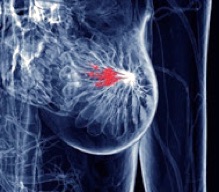


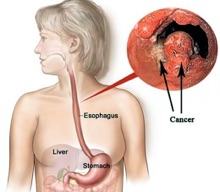

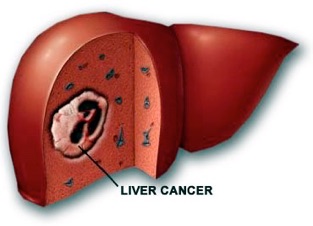
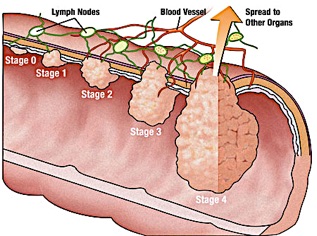

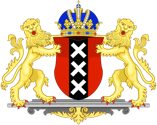
Amsterdam Eye Hospital
Oogziekenhuis Amsterdam

